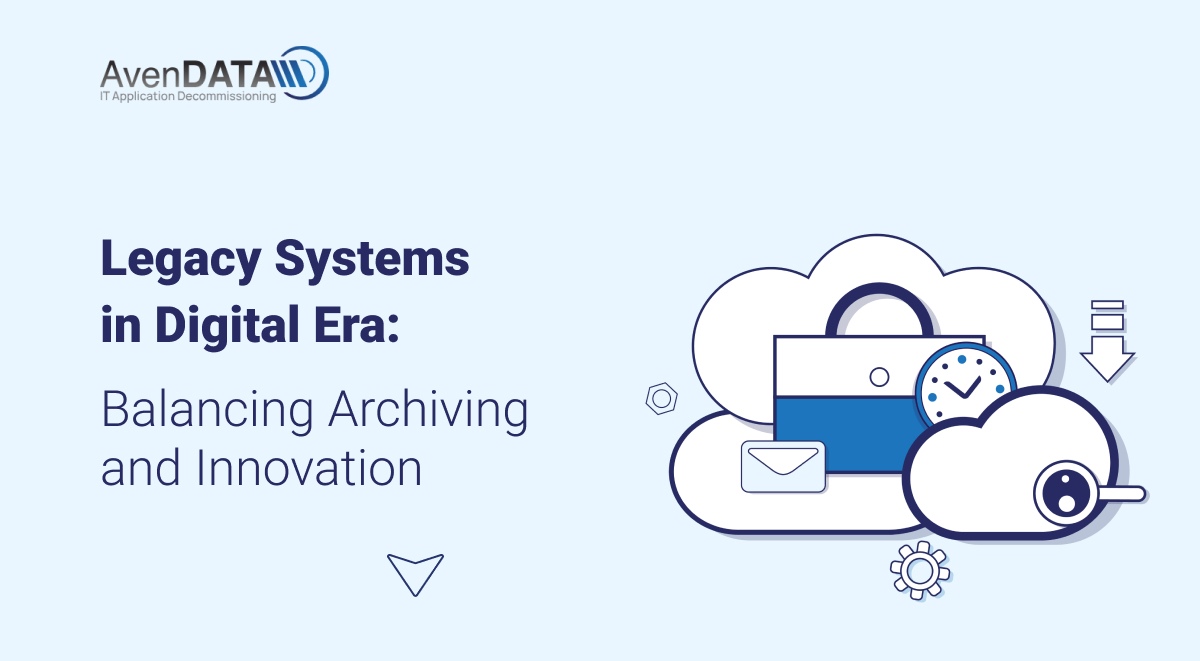In today’s era of digital transformation, businesses face unprecedented challenges and opportunities. The rapidly advancing technological change forces organizations to rethink their business models, modernize their practices, and implement digital strategies to remain competitive. Transformation is ubiquitous – from the way we communicate to new approaches in management and operations. However, amidst this tumultuous sea of change, we must not lose sight of a critical aspect: the archiving of legacy systems.
Legacy systems, often referred to as “Altsysteme” in German, are the backbone of many companies. They contain valuable data and functions built up over years. While the focus is on innovation and the adoption of state-of-the-art technologies, there’s a risk that these older systems may be viewed as relics of the past and neglected. However, this attitude can lead to costly mistakes.
Archiving legacy systems is not just a matter of data backup; it’s a strategic decision that can save significant costs. Through careful analysis and preservation of old data and functions, companies can ensure they don’t lose critical information during transformation. Furthermore, archiving enables more efficient resource utilization. Instead of squandering resources on maintaining outdated and possibly inefficient systems, companies can preserve the best parts of their old systems through archiving while focusing on the development and implementation of new technologies.
The challenge lies in finding a balance. Digital transformation requires courage, innovation, and the willingness to cut ties with the past. At the same time, it requires some wisdom and foresight not to discard the past carelessly. Companies that manage to archive their legacy systems effectively will not only save costs but also secure a solid foundation for future growth and innovation.
In summary, digital transformation is a complex process that requires comprehensive consideration. In addition to adopting new technologies and practices, companies must also keep an eye on their existing systems and data. Archiving legacy systems plays a crucial role in this regard. It enables companies to learn from their history, save valuable resources, and prepare for the challenges and opportunities of the future.





Comments